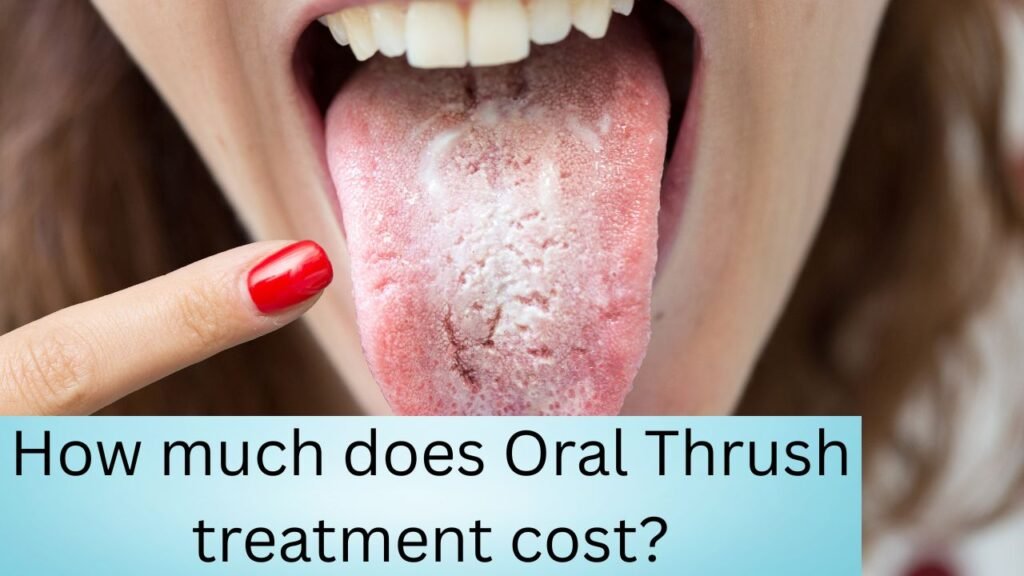If you’re dealing with oral thrush, you’re likely wondering how much treatment might set you back. The cost of treating oral thrush can vary greatly depending on your situation. From over-the-counter remedies to prescription medications and doctor visits, there are several factors that influence the overall cost. Here’s a breakdown of what to expect for different treatment options and how they might fit your budget.
Cost Summary of Oral Thrush Treatment
On average, oral thrush treatment in the USA can cost anywhere from $10 for basic over-the-counter (OTC) treatments to more than $150 when you factor in prescription medication and doctor’s visits for severe cases.
Key factors influencing cost:
- Whether you opt for over-the-counter treatments or prescription medication
- The severity of your condition (mild or severe)
- Your insurance coverage (including any co-pays or out-of-pocket costs)
- Whether you need a doctor’s consultation

Understanding the Cost of Over-the-Counter (OTC) Treatments
Cost: $10-$30
For mild cases of oral thrush, OTC treatments like antifungal mouth gels and lozenges are often enough to clear up the infection.
- Mild cases:
- Cost Range: $10-$15
- Options: Antifungal mouth gels, lozenges, or rinses.
- Pros: Easily accessible without a prescription and affordable.
- Cons: May not work for more severe cases, leading to the need for prescription treatments.
- Moderate cases:
- Cost Range: $15-$30
- Options: Over-the-counter treatments with stronger antifungal ingredients or combinations.
- Pros: More potent than basic OTC treatments.
- Cons: Might not be sufficient if the infection is more persistent or widespread.
While OTC treatments can help in the early stages, mild cases of oral thrush typically stay within the lower end of the cost range, but for more severe cases, you might need to upgrade to prescription medication.
Cost of Prescription Medications for Oral Thrush
Cost: $30-$150+
If your infection is more severe or persists, your doctor may prescribe medication such as fluconazole (Diflucan) or nystatin. Prescription options tend to be more expensive and may require a visit to the doctor.
- Mild to Moderate Cases:
- Cost Range: $30-$60
- Options: Generic fluconazole or nystatin, typically taken for a few days to a week.
- Insurance Impact: With insurance, you may pay as little as $5 for a generic fluconazole prescription, but without insurance, the cost could go up to $30 or more.
- Severe Cases:
- Cost Range: $60-$150+
- Options: More aggressive treatments or longer durations of antifungal medication.
- Pros: More effective for severe infections.
- Cons: Can be expensive, especially for those without insurance or with high deductibles.
If you’re uninsured or have a high deductible, the out-of-pocket cost for a prescription medication like fluconazole could range from $30 to $100 or more. This cost adds up quickly if you need a stronger, longer treatment.
Cost of Doctor’s Consultation
Cost: $20-$100+
Many individuals with oral thrush will need a doctor’s consultation to confirm the diagnosis and get a prescription. This initial consultation can cost anywhere from $20 to $100, depending on whether you see a primary care physician or a specialist.
- Doctor’s Visit Costs:
- General Practitioner: $20-$50
- Specialist (e.g., ENT or Dermatologist): $50-$100+
Note: While there’s an initial cost for a consultation, getting a proper diagnosis can prevent you from wasting money on ineffective OTC treatments and ensure you receive the most appropriate prescription, potentially saving money in the long run.
Home Remedies for Oral Thrush
Cost: $0-$10
Home remedies are often the most cost-effective, but they may only be suitable for mild cases of thrush.
- Mild Case Options:
- Cost: Free to $10 (common ingredients such as coconut oil, baking soda, or salt water).
- Pros: Low-cost, easily accessible.
- Cons: May not be effective for moderate or severe cases, delaying the treatment and potentially causing the infection to worsen.
Disclaimer: While home remedies can provide temporary relief, they are not likely to work for moderate to severe infections, which could require prescription medications. Relying on these remedies for anything more than mild cases may delay proper treatment and increase the overall cost if the infection worsens.
Cost Factors for Prescription Drugs
- Insurance Coverage:
- With Insurance: Generic prescriptions like fluconazole may only cost $5-$20, depending on your coverage.
- Without Insurance or High Deductible Plans: The cost for the same medication can rise significantly, anywhere from $30 to $100 or more.
- Co-pays and Deductibles:
- Some people with insurance may still face significant out-of-pocket costs, especially if their deductible hasn’t been met.
Questions to Ask Your Doctor About Treatment Costs
Before heading to the doctor, it’s always helpful to have a few key questions ready:
- What are the generic options available for my condition?
- Will my insurance cover the prescription medications?
- Are there any lower-cost alternatives or treatments I can try first?
These questions will help you get a clearer understanding of potential costs and ways to manage your expenses effectively.
Conclusion: The Cost of Oral Thrush Treatment
The cost to treat oral thrush in the USA can range from as little as $10 for mild over-the-counter approaches to over $150 or more when considering prescription medications, doctor visits, and additional treatments for more severe cases.
Ultimately, the cost varies depending on several factors, including the severity of the infection, whether you need a doctor’s consultation, and your insurance situation. To get the most accurate estimate, consult with a healthcare professional who can diagnose the severity and recommend the most cost-effective treatment plan.
Find Your Perfect Dentist
Easily book appointments with top-rated dentists in your area
Need Emergency Dental Care?
Get immediate help from verified dental professionals